Neuroscience
-
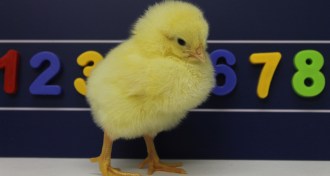 Neuroscience
NeuroscienceChicks show left-to-right number bias
Recently hatched chicks may have their own version of the left-to-right mental number line.
By Susan Milius -
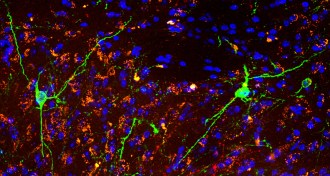 Neuroscience
NeuroscienceNewly identified brain circuit could be target for treating obesity
In mice, specific nerve cells control compulsive sugar consumption, but not normal feeding, hinting at a new therapeutic target for treating obesity.
-
 Science & Society
Science & SocietySmell circuitry, stalled stem cells and more reader feedback
Readers discuss a journal's publishing practices, ask about the human sense of smell and weigh in on their favorite picks from our Top 25 stories of the year.
-
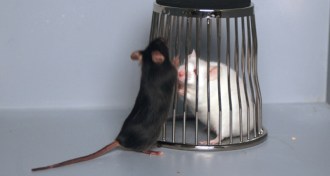 Neuroscience
NeuroscienceImmune system may remember and adapt to stress
Mice without immune systems who receive stressed immune cells are less anxious and more social, suggesting that the immune system can adapt to stress.
-
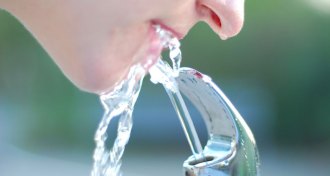 Neuroscience
NeuroscienceTwo sets of neurons turn thirst on and off
A study in mice reveals that two neural groups in the hypothalamus drive the body’s need to quench or not to quench.
-
 Neuroscience
NeuroscienceDecoding sommeliers’ brains, one squirt of wine at a time
Researchers use a ‘gustometer’ to control wine portions in experiments comparing the brains of sommeliers and novices.
-
 Neuroscience
NeuroscienceBrain’s protective barrier gets leakier with age
Aging influences the breakdown of the blood-brain barrier, which may contribute to learning and memory problems later in life.
-
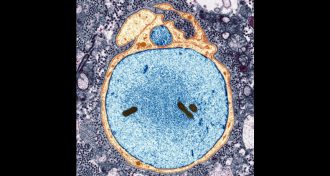 Health & Medicine
Health & MedicineImmune system ‘reset’ may give MS patients a new lease on life
With the help of their own stem cells, MS patients can stop the disease in its tracks in many cases.
By Nathan Seppa -
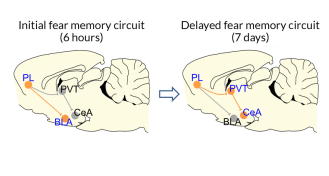 Neuroscience
NeuroscienceNewly identified brain circuit hints at how fear memories are made
A newfound set of brain connections appears to control fear memories, a finding that may lead to a better understanding of PTSD and other anxiety disorders.
-
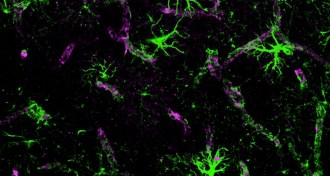 Neuroscience
NeuroscienceBrain’s plumbing may knock out blood test for brain injury
The brain's waste-removal system may complicate scientists' attempts to create a blood test to diagnose traumatic brain injury.
-
 Neuroscience
NeuroscienceTo beat sleepiness of anxiety drugs, team looks to body’s clock
Studying basic functions, such as the body’s clock, has inadvertently led to a compound that relieves anxiety in mice.
-
 Neuroscience
NeuroscienceFeedback
Readers discuss volcanoes and brain studies involving chocolate, and recommend some science-based options for game night.